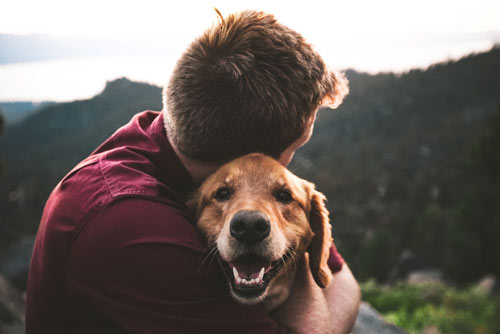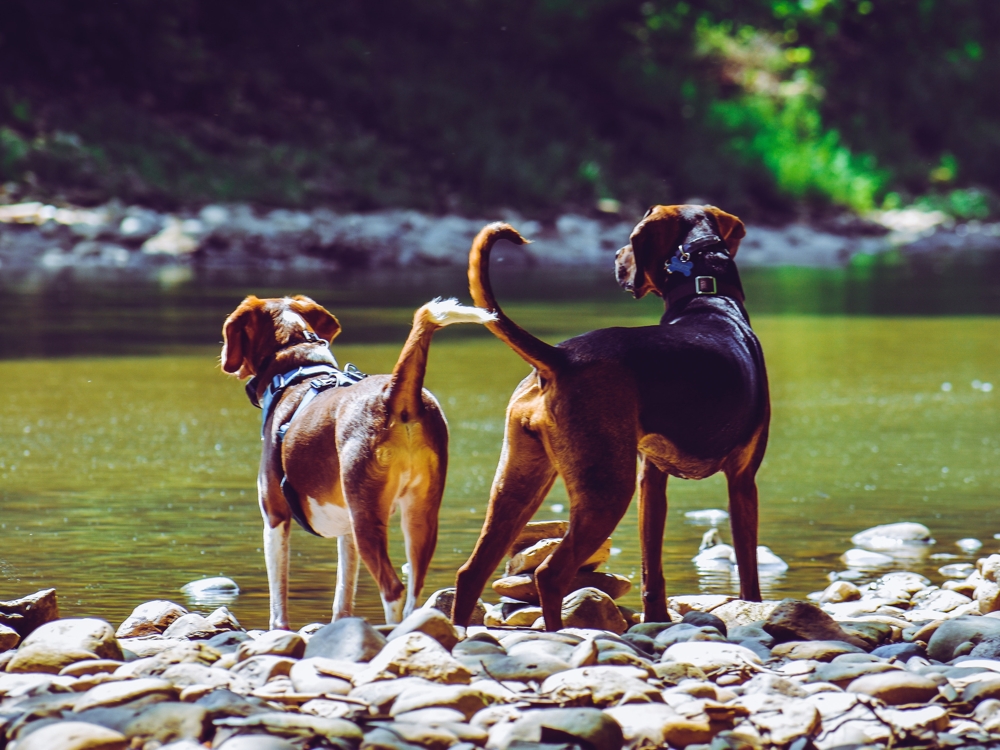Does My Dog Need Vitamins?
Share
[Sassy_Social_Share]Many of us start the day by popping a multivitamin to make sure we’ve got all the nutritional bases covered in case our diet falls short. But what about our best friends? What vitamins and minerals do dogs need? How can we be sure they are getting all of their nutritional needs met? Do dogs need vitamin supplements?

Your dog’s nutrition is the foundation of their good healthy and quality of life. And yes, dogs do need vitamins and minerals to grow properly and stay healthy. But they should never take a multivitamin designed for people. We need different amounts and a different balance of vitamins and minerals, so vitamins for people could be dangerous for dogs.
While your dog needs vitamins and minerals, they probably do not need a supplement. Nutritional supplements for dogs can be helpful in certain situations, but a quality dog food will supply the nutrition a dog needs to thrive. When your dog is eating a quality food made of wholesome ingredients, their coat and eyes will shine and they’ll have plenty of energy. If your dog’s coat is dull or they seem lethargic, supplements are not the first step. A visit to the vet is in order, and if your vet rules out any illness, it is time to consider changing their food. But to select the best option, you need to know what vitamins and minerals dogs need.
What Vitamins and Minerals Do Dogs Need?
Dogs need the whole range of vitamins and minerals. It is the quantity and the balance that is critical to their well-being. That is one reason that buying a high quality dry dog food is better for most dogs than trying to make their food at home. Using traceable, sustainable ingredients, a dog food maker such as Connolly’s RED MILLS can ensure that your pet’s diet provides all the nutrients they need to thrive.

Vitamin A promotes healthy growth and a strong immune system, as well as good vision. But if a dog gets excess vitamin A, it can eventually lead to joint damage and stiffness. Vitamin A toxicity is caused by feeding too much organ meat or by overdoing supplements.
The B vitamins all play an important role. Pantothenic acid and thiamine are critical for metabolism, while B6 is essential for the nervous system and red blood cell function. The B vitamins are water soluble. That means it is difficult, although not impossible, to overdose on them.
Vitamin C is an antioxidant, and unlike humans, dogs can actually produce it in their liver. It’s water soluble, but excess can cause bladder or kidney stones to form as the body flushes it out. Unless your vet advises otherwise, dogs do not need vitamin C supplements.
Vitamin D supports healthy bones and teeth while also keeping your dog’s body chemistry balanced. But an excess of this fat soluble vitamin causes kidney failure. One form of vitamin D is used in rat poisons, and that is a more common source of vitamin D overdose in dogs than diet or supplements.
Vitamin E is necessary for eye and muscle health, cell function and fat metabolism. It’s an important anti-oxidant found in leafy green vegetables. Many pet foods include vitamin E, so it is extremely rare that a dog would need to supplement this fat soluble vitamin.
More about Minerals
Of course, dogs need minerals too. That is often overlooked in a discussion of what vitamins and minerals do dogs need. Calcium is essential for strong bones and healthy teeth as well as good heart function. Too much calcium, however, can be dangerous. It can lead to problems including constipation, bladder stones, abnormal bone development, and excess calcium can aggravate other health conditions such as heart or kidney disease. Never give your dog calcium supplements unless it is recommended by your vet.
Low levels of iron in dogs can lead to anaemia, as it does in people. But in dogs, anaemia is usually caused by another health problem such as internal bleeding, parasites or cancer rather than a poor diet. Fatigue and pale gums are the most obvious signs of anaemia in dogs. Copper is essential to help your dog absorb iron. If your dog is eating a quality brand of dry dog food, they are getting plenty of iron and copper.

Zinc supports a healthy immune system and thyroid in dogs. Some breeds are prone to a condition called zinc responsive dermatosis. This primarily effects Siberian Huskies, Doberman Pinschers and Great Danes, and these dogs typically have an adequate amount of zinc in their diets. Dogs with this condition may need zinc supplementation, but this should done with your vet’s supervision.
Making Sure Your Dog Gets the Vitamins and Minerals They Need
The most convenient and sure-fire way to make sure your dog is getting the right balance of vitamins and minerals is to buy the best brand of commercial dog food you can afford. Looks for one like Connolly’s RED MILLS Leader, Engage or Go Native that uses locally sourced, wholesome ingredients. Learn how to read a dog food label so you know what you are feeding your beloved pet.
Most commercial foods, especially from larger brands, are adequate. What distinguishes the adequate from the superior isn’t a slick marketing campaign or an adorable photo – it’s a reliable team in place from the farmers who provide the ingredients to the pet nutrition specialists who develop the recipe to the folks on the floor who prepare the food and monitor quality. Pick a food appropriate for your dog’s age, size and lifestyle, and they should thrive. If your dog isn’t thriving, talk to vet before adding any vitamin or mineral supplements to their diet. Your vet can perform an exam and blood tests to determine exactly what is needed, which is always better than gambling with your pet’s health by guessing and risking a toxic level of a particular nutrient. When you are questioning what vitamins and minerals do dogs need, trial and error is not the way to find out.





